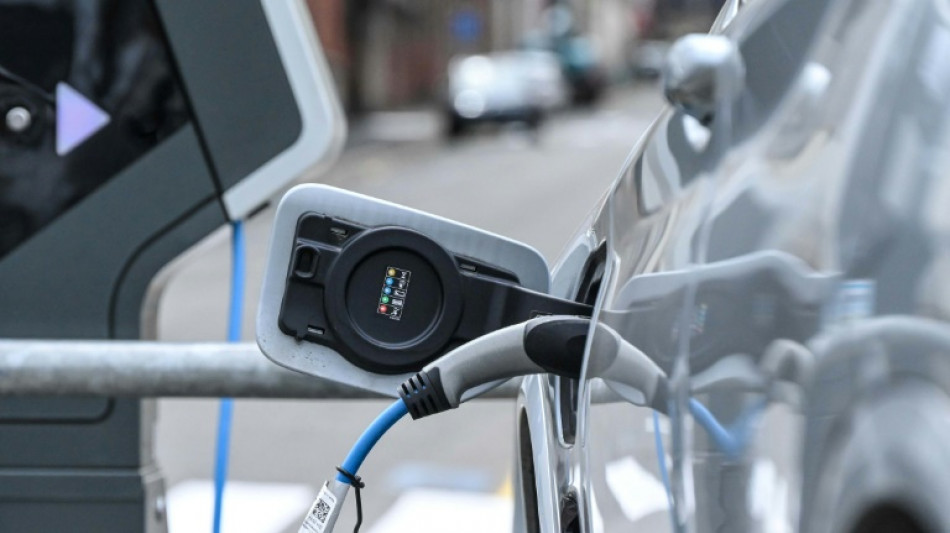Automakers form N.America EV charging network alliance / Photo: DENIS CHARLET - AFP
Seven major global automakers said on Wednesday they were creating a joint venture for an extensive North American charging network in a bid to boost demand for electric vehicles.
BMW, General Motors, Honda, Hyundai, Kia, Mercedes-Benz and Stellantis said in a statement their alliance would make "EV charging more convenient, accessible and reliable".
The network is set to install at least 30,000 high-powered chargers, the companies said, using federal and state subsidies along with private funds.
"The new charging stations will be accessible to all battery-powered electric vehicles from any automaker," they said.
The stations will offer connectors for both the so-called Tesla system, known as the North American Charging Standard (NACS), as well as the rival standard, known as the combined charging system (CCS).
The joint venture, due to be established this year, "aims to become the leading network of reliable high-powered charging stations in North America".
The first stations, powered solely by renewable energy, are scheduled to open in the United States next summer and in Canada "at a later stage".
They will be built in cities and along major highways, as well as on key commuter and vacation routes.
With US electric vehicle sales expected to exceed 50 percent of total US sales by 2030, "the expansion of reliable charging infrastructure will become even more critical to widespread electric vehicle adoption," the companies said.
Elon Musk's Tesla has already been forming charging partnerships with major car companies including Ford, General Motors and EV truck company Rivian.
Under the partnerships, Musk has agreed to let consumers with autos from rival brands utilise its popular national network.
The ascendance of Tesla's network has reflected the system's reputation for reliability, as well as the sluggish expansion of rival EV charging options amid supply chain problems and a slow rollout of a giant federal programme.
A January 2023 forecast by S&P Global concluded that the US charging system was "not nearly robust enough to support a maturing electric vehicle market," saying that the number of EV chargers in the country would need to quadruple between 2022 and 2025.
The US National Electric Vehicle Infrastructure (NEVI) programme, established in the 2021 infrastructure bill signed into law by President Joe Biden, provides $5 billion in funds for states to build EV charging networks.
D.Jayaraman--BD
